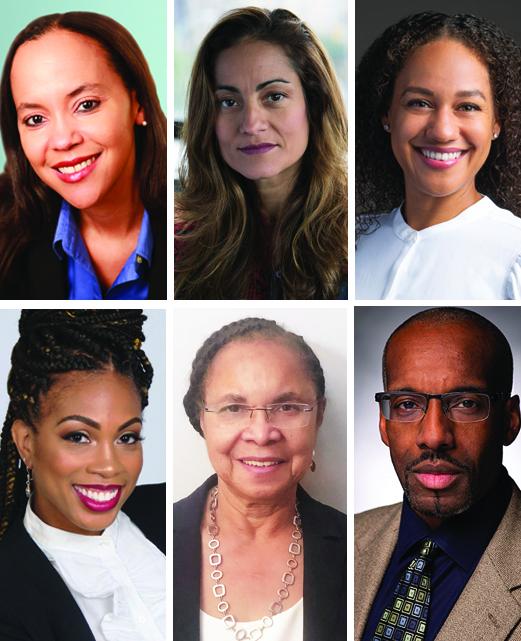
Amid a national opioid overdose crisis that the Centers for Disease Control and Prevention estimates cost nearly 50,000 lives in 2019, The City College of New York and its partners are embarking on a study to evaluate the effectiveness of substance use disorder treatments for Black people who use cocaine. Hailed as innovative, the two-year project is supported by a $334,300 grant from the National Institute on Drug Abuse (NIDA) Drug Abuse Treatment Clinical Trials Network (CTN).
Lesia M. Ruglass and Adriana Espinosa, professors in the department of psychology in City College’s Colin Powell School for Civic and Global Leadership, are co-PI and co-investigator (co-I), respectively, of the project entitled: “Integrative Data Analysis of CTN Studies to Examine the Impact of Psychosocial Treatments for Black People who use Cocaine.”
CCNY’s partners include the University of Cincinnati (co-PI: Ann Kathleen Burlew, PhD), Yale University (co-I: Angela Haeny, PhD), NYU (co-I: Ayana Jordan, MD, PhD), and RTI International (co-I: Antonio A. Morgan-Lopez, PhD), with four designated CTN nodes for feedback -- Western States, New England, New York, and Ohio Valley.
In their funding proposal to NIDA, the partners noted that recent reports reveal that the acceleration of opioid-involved overdose deaths for Black people now outpace that of White people. This increase is at least partly attributable to the presence of synthetic opioids (fentanyl) in the cocaine supply in approximately one third of opioid overdose deaths. The CTN provides a unique but underexplored collection of studies that can improve knowledge on effective psychosocial treatments for Black people who use cocaine.
The study will combine data from seven CTN treatment studies that in combination will yield a larger database of Black participants (N = 1,442) than typically available in clinical trials. Using multiple novel measurement/data analysis frameworks (integrative data analysis (IDA), meta-analysis of individual patient data (MIPD), and causal moderation analysis), the study will evaluate the effectiveness of substance use disorder treatments for Black people who use cocaine.
Experts consider the project critical and innovative for three reasons. First, “the results will be critical in clarifying which types of treatments are most beneficial for various subgroups of Black people who use cocaine and the social-contextual factors that influence treatment outcomes,” said Ruglass.
And secondly, “The proposed project will contribute substantially to the information available to providers searching for the most appropriate treatments for Black people who use cocaine,” said Burlew.
Third, it will contribute to the training of early career investigators from underrepresented groups through linkage with the Learning for Early Careers in Addiction & Diversity (LEAD) program at the University of California – San Francisco.
About the City College of New York
Since 1847, The City College of New York has provided a high-quality and affordable education to generations of New Yorkers in a wide variety of disciplines. CCNY embraces its position at the forefront of social change. It is ranked #1 by the Harvard-based Opportunity Insights out of 369 selective public colleges in the United States on the overall mobility index. This measure reflects both access and outcomes, representing the likelihood that a student at CCNY can move up two or more income quintiles. In addition, the Center for World University Rankings places CCNY in the top 1.8% of universities worldwide in terms of academic excellence. Labor analytics firm Emsi puts at $1.9 billion CCNY’s annual economic impact on the regional economy (5 boroughs and 5 adjacent counties) and quantifies the “for dollar” return on investment to students, taxpayers and society. At City College, more than 16,000 students pursue undergraduate and graduate degrees in eight schools and divisions, driven by significant funded research, creativity and scholarship. CCNY is as diverse, dynamic and visionary as New York City itself. View CCNY Media Kit.
Jay Mwamba
p: 212.650.7580
e:
jmwamba@ccny.cuny.edu